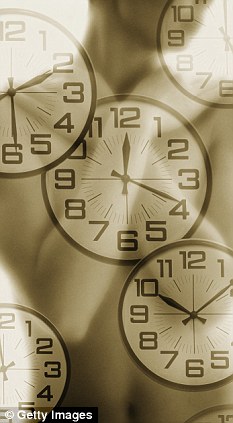Babylon
JF-Expert Member
- Feb 5, 2009
- 1,332
- 82
Why the biological clock is ticking for women aged 30
Last updated at 10:05 AM on 27th January 2010
 The biological clock is ticking for women aged 30 and over, according to a new study
The biological clock is ticking for women aged 30 and over, according to a new study
The speed at which female fertility declines has been highlighted by the first study to track a woman's supply of eggs from conception to the menopause.
The average 30-year-old will have just 12 per cent - barely an eighth - of her eggs left, the research shows.
By her 40th birthday the situation is even more bleak, with just 3 per cent of the two million or so eggs she was born with remaining.
Only about 450 of the two million eggs will fully mature over a woman's lifetime. Many others will start to mature before dying off.
The more eggs the woman has, the greater the odds of one maturing enough to allow her to become pregnant.
Researcher Dr Tom Kelsey, of St Andrews University, said: 'There are women waiting for the next promotion or waiting to meet Mr Right.
'Women often do not realise how seriously ovarian reserve declines after the age of 35. Every year that goes by you are losing a big proportion of your ovarian reserve.
'A lot of people get to their menopause in their mid or late 40s. It is only the average age that is 50 or 51.'
The rapid decline of a woman's store of eggs - and fertility - was known before. But this study is the first to trace its entire path, from before birth through to the end of child bearing years, rather than looking at specific age groups.
Working with Edinburgh University experts, Dr Kelsey counted the number of eggs in the ovaries of 325 women of a variety of ages.
The information was then fed into a computer programme which worked out how the supply declined with time.
The analysis, which is reported in the journal PLoS ONE, also showed that until the age of 25 lifestyle factors such as smoking or alcohol have little effect on a woman's fertility. But after this point the way a woman looks after her body has a marked effect on fertility.
Unlocking the workings of female biological clocks could help doctors better advise young cancer patients on how to preserve their fertility.
If they can work out what proportion of the eggs supply is likely to be killed off by radiotherapy or chemotherapy, they can calculate when the patient is likely to go through menopause - and advise her on when to start a family.
Edinburgh University researcher Dr Hamish Wallace said that in some cases, the patient's best chance of having a family may come from freezing some eggs or ovarian tissue ahead of treatment.
He added that the results do not tally with the controversial theory that ovaries contain stem cells capable of replenishing a woman's supply of eggs as she ages. Instead, the stock of eggs is fixed at birth.
Last updated at 10:05 AM on 27th January 2010

The speed at which female fertility declines has been highlighted by the first study to track a woman's supply of eggs from conception to the menopause.
The average 30-year-old will have just 12 per cent - barely an eighth - of her eggs left, the research shows.
By her 40th birthday the situation is even more bleak, with just 3 per cent of the two million or so eggs she was born with remaining.
Only about 450 of the two million eggs will fully mature over a woman's lifetime. Many others will start to mature before dying off.
The more eggs the woman has, the greater the odds of one maturing enough to allow her to become pregnant.
Researcher Dr Tom Kelsey, of St Andrews University, said: 'There are women waiting for the next promotion or waiting to meet Mr Right.
'Women often do not realise how seriously ovarian reserve declines after the age of 35. Every year that goes by you are losing a big proportion of your ovarian reserve.
'A lot of people get to their menopause in their mid or late 40s. It is only the average age that is 50 or 51.'
The rapid decline of a woman's store of eggs - and fertility - was known before. But this study is the first to trace its entire path, from before birth through to the end of child bearing years, rather than looking at specific age groups.
Working with Edinburgh University experts, Dr Kelsey counted the number of eggs in the ovaries of 325 women of a variety of ages.
The information was then fed into a computer programme which worked out how the supply declined with time.
The analysis, which is reported in the journal PLoS ONE, also showed that until the age of 25 lifestyle factors such as smoking or alcohol have little effect on a woman's fertility. But after this point the way a woman looks after her body has a marked effect on fertility.
Unlocking the workings of female biological clocks could help doctors better advise young cancer patients on how to preserve their fertility.
If they can work out what proportion of the eggs supply is likely to be killed off by radiotherapy or chemotherapy, they can calculate when the patient is likely to go through menopause - and advise her on when to start a family.
Edinburgh University researcher Dr Hamish Wallace said that in some cases, the patient's best chance of having a family may come from freezing some eggs or ovarian tissue ahead of treatment.
He added that the results do not tally with the controversial theory that ovaries contain stem cells capable of replenishing a woman's supply of eggs as she ages. Instead, the stock of eggs is fixed at birth.